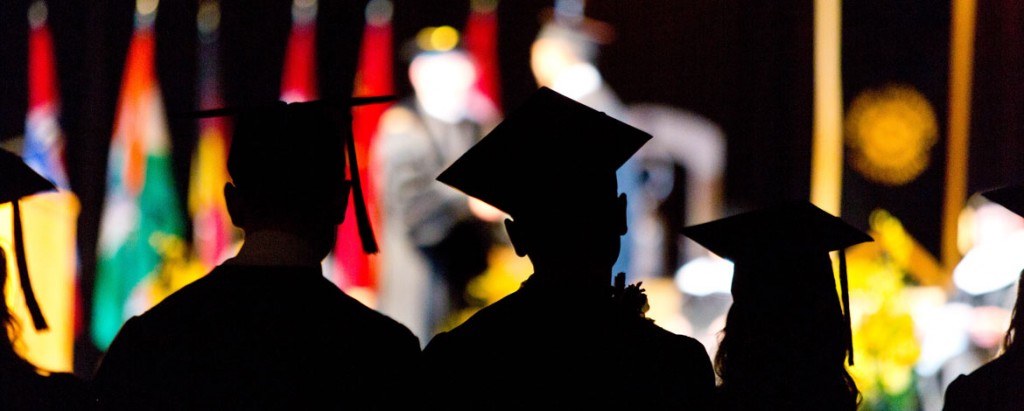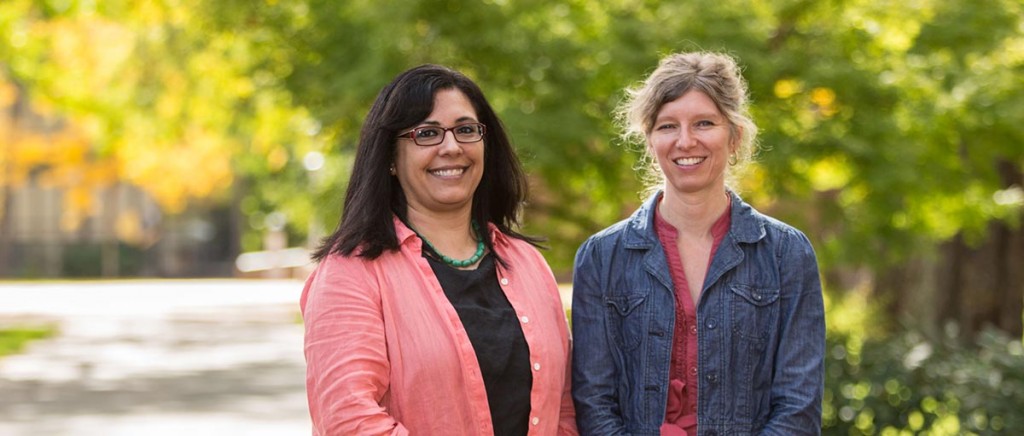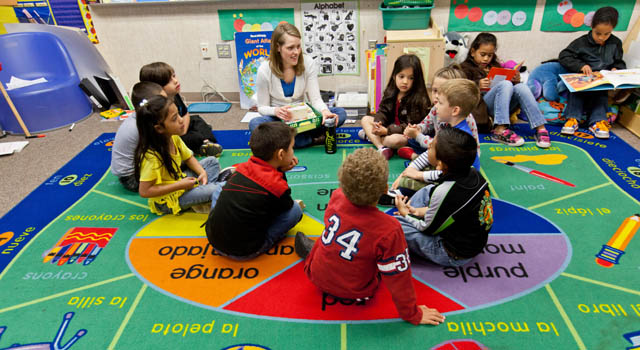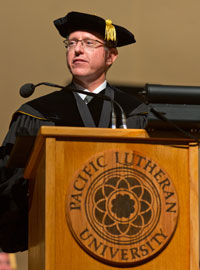Page 49 • (493 results in 0.088 seconds)
-

TACOMA, Wash. (May 23, 2019 ) — Judging by its accomplishments, Pacific Lutheran University’s Class of 2019 is poised to make an immediate impact on the world — mostly because they already have done so much at PLU. Here’s a look at just a handful…
situations that will help you grow to your greatest potential and accomplish your goals.”Nelago NuunyangoMajor: Political Science, with a minor in Literature Hometown: Epato village, Namibia Selected accomplishments: Graduation Honors (magna cum laude); PLU Q Club Scholarship; PLU Academic Scholarship; First in Family Scholarship; Donald R. Farmer Award; Lutheran Leadership Award; Sigma Tau Delta English Honor Society; Phi Theta Kappa Honor Society Post-graduation plans: Pursuing graduate study in
-

TACOMA, WASH. (May 15, 2017)- Classes are over, tests are on the horizon and therapy dogs are waiting in the wings. It’s the end of spring semester, and for several hundred Lutes that means life after college beckons. Pacific Lutheran University students are fast approaching…
academic journey filled with inquiry, challenges and the pursuit of vocation — grounded in the values of Lutheran higher education. But the learning won’t end when graduates walk across the stage the night of May 25. Roughly 700 students will gather to celebrate their achievements, and more importantly the next step in their lives of service and leadership, as they embark on new careers, graduate school and volunteer opportunities. Outgoing Lutes will carry the university’s mission with them into their
-
2015 Convocation 2015 CONVOCATION President’s Remarks Good morning! I’m delighted to welcome you all to the 2015 University Convocation! Whether you are a part of the entering class of 2019, a student joining us with some college experience already behind you, or an exchange student…
called the PLU Corporation, which confirms the members of our governing body, the Board of Regents. We assemble this distinguished company to welcome you to the serious and noble work of this University—and to pledge our commitment to your success. It is a rite of passage inviting you to subscribe to the mission and common values of this place: Thoughtful inquiry, service, leadership and care – for other people, for their communities and for the Earth. The values that have shaped this university
-
Spring, 2022 This issue marks an important transition for the Division of Humanities. As of this summer, the Humanities programs —English, Languages & Literatures, the Language Resource Center, the Master of Fine Arts in Creative Writing, the Parkland Literacy Center, Philosophy, and Religion— will merge…
prepare one for a life of “thoughtful inquiry, service, leadership, and care.” Writing 11 years later, with continuing economic and social uncertainty, I must also report that we’ve faced serious budgetary challenges at PLU, which have had a profound impact on the humanities. Next year we will sadly not be offering degrees in Classics, German, or Nordic Studies. All of our programs have seen reductions, and this spring some colleagues are completing their final year of teaching earlier than they had
-
Global health: Why does it matter? If public health was a fashion show, global health would be the new black. It’s hot. But what is global health, exactly? And why does it matter? Mark Twain once complained that everybody talks about the weather but nobody…
the media appeared to be paying it much attention at this stage. (As an example, a Google search of “global health” back then turned up mostly Seattle Post-Intelligencer stories. That’s certainly no longer the case.) Since then, of course, the world has taken notice of the Gates Foundation’s rapidly expanding leadership on many fronts of global health. It should be noted, however, that not everybody has been happy to ascribe to Gates the reinvigoration of this once-neglected field in human health
-

TACOMA, WASH. (Sept. 28, 2016) – The Pacific Lutheran University Department of Languages and Literatures will host the Tournées Film Festival this fall for screenings of nine recently released films representing a wide variety of cultures and historical periods. (Film trailers and descriptions below.) A…
Volverán) and the visit of filmmaker Pablo Martínez Pessi are possible thanks to the Uruguayan Ministry of Foreign Relations and the OEI (Organization of Ibero-American States) and its program on education and human rights. Read Previous Amazon Locker locations debut on campus for Lutes, community members seeking convenient self-service delivery options Read Next PLU ROTC student to be honored in Washington, D.C., as only recipient of Green to Gold award for excellence in leadership COMMENTS*Note: All
-

TACOMA, Wash. (May 23, 2019)— With Commencement on May 25, Pacific Lutheran University sends its next class out into the world—more than 800 Lutes are eligible to graduate, with 700 expected to participate in the Commencement ceremony. Judging by the accomplishments of the Class of…
Scholarship; PLU Academic Scholarship; First in Family Scholarship; Donald R. Farmer Award; Lutheran Leadership Award; Sigma Tau Delta English Honor Society; Phi Theta Kappa Honor Society Post-graduation plans: Pursuing graduate study in international relations; founding an organization to promote immigrant voter participation in Washington state “I’ve never been a traditional student,” said Nelago Nuunyango, “but I’ve seen traditional students struggle.” One of nine children of a subsistence farmer in
-
Originally published in 2003 The daily headlines reflect the relentless march to war and violence: probable war in Iraq, continuing strife in the Middle East and the “war” on terror. Like other members of faith communities across the globe, I find myself wondering how I,…
for the same reasons. The ties that bind faith communities can do so in different ways and with varying degrees of strength and consent. What kind of faith community was Le Chambon? At first glance it might seem that Le Chambon was a homogenous community of Huguenot Christians who lived largely isolated from the outside world, but on closer inspection the situation is more complex. The village was mainly French Huguenot and much of the leadership came from the pastors, Andre Trocme and Eduard
-

Jenna Serr in her kindergarten class at James Sales Elementary. (Photos by John Froschauer) A calling to teach By Chris Albert Jenna (Steffenson) Serr ’06 ’10 takes account of her flock of kindergartners. Her eyes assessing every corner of the room, she sees her students…
another. They asked, and Schroeder said come up with a proposal – a bracket, how long games would go, how teams would be organized, outreach to other classes to find out interest – all the trappings of organizing a basketball tournament. “It’s cool to see them take ownership of their school that way,” Edwards said. “They are taking a leadership role they haven’t taken before.” The students made a proposal and presented their idea to Schroeder, who approved it. Needless to say, Edwards has a little
-

http://www.youtube.com/watch?v=9bfe90PTrXY Pacific Lutheran University Inaugural Address By President Thomas W. Krise Before we get started, I’d like to have a word with the brand new freshmen and transfer students. You are, after all, MY class. We all become Lutes together today. I have proof that…
ensuring their education, and for fostering leaders committed to service to others finds itself well represented in PLU’s mission statement: We seek to educate students for lives of thoughtful inquiry, service, leadership, and care—for other people, for their communities, and for the earth. At PLU today, our distinctive expression of American higher education includes a superb liberal arts curriculum—with its stellar faculty and students in the sciences and social sciences, in the humanities, in music
Do you have any feedback for us? If so, feel free to use our Feedback Form.


